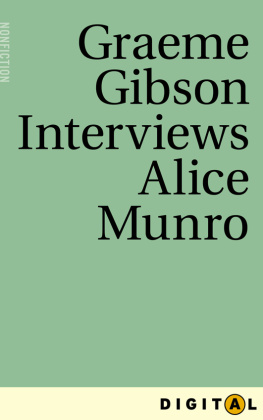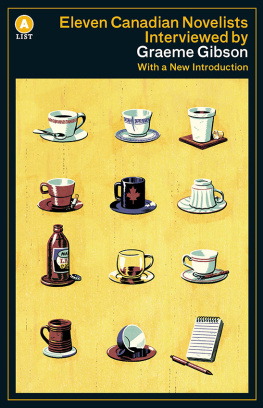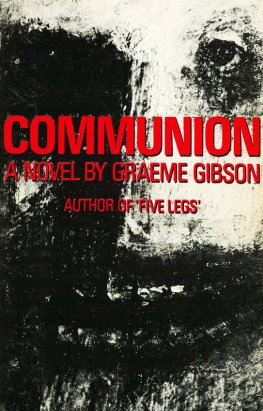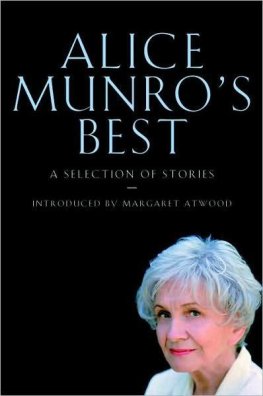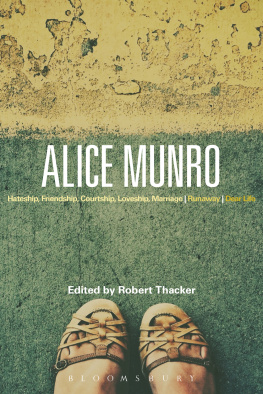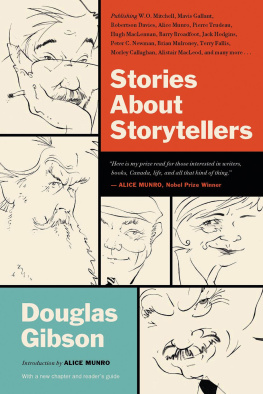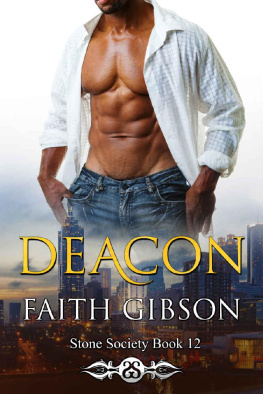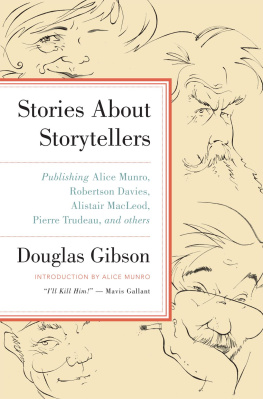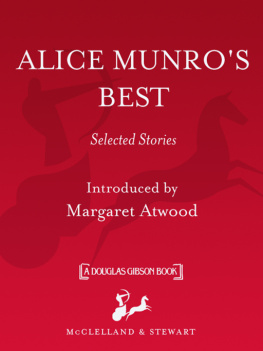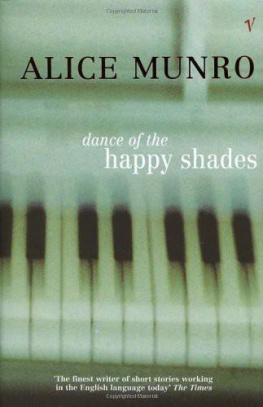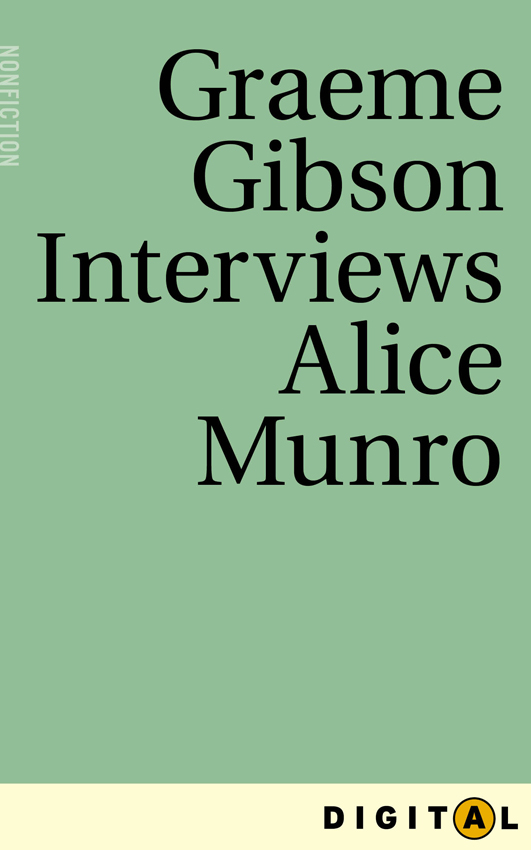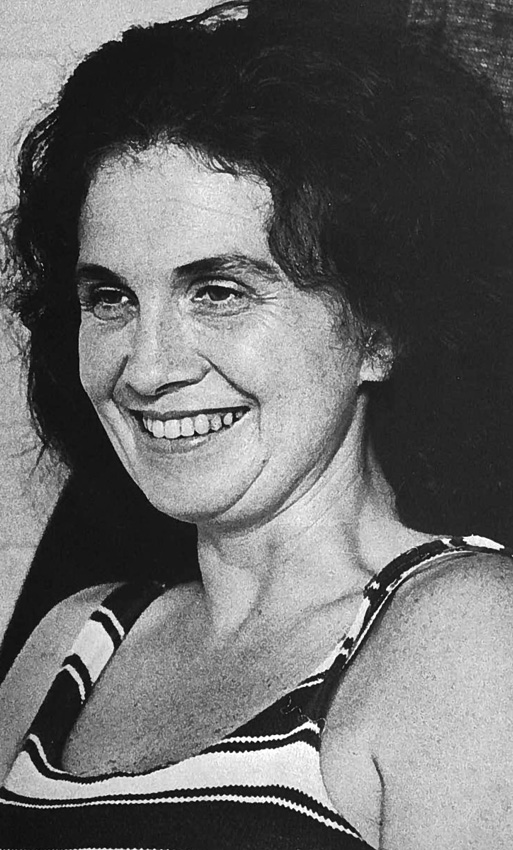GRAEME GIBSON
INTERVIEWS
ALICE MUNRO
_________________________________________
__________________________
_________________________________________
From
Eleven Canadian Novelists
Interviewed by Graeme Gibson
Ill begin with a general question: do you think writers know something special, in the way physicists or anthropologists do?
You mean probably that writers are... have just seen something special. I dont think they know something special. I do think that they, perhaps, just perhaps they see things differently. Well I know to me, just things in themselves are very important. Im not a writer who is very concerned with ideas. Im not an intellectual writer. Im very, very excited by what you might call the surface of life, and it must be that this seems to me meaningful in a way I cant analyze or describe.
Now when you say its not that they know something special, but they see something special... what kinds of things?
Well for me its just things about people, the way they look, the way they sound, the way things smell, the way everything is that you go through every day. It seems to me very important to do something with this.
Yes. I mean, perhaps one of the most exciting things I found in reading your stuff was an incredible kind of recognition of how things are.
It seems to me very important to be able to get at the exact tone or texture of how things are. I cant really claim that it is linked to any kind of a religious feeling about the world, and yet that might come closest to describing it.
A slightly different kind of question: in what way is writing important to you?
God... do you mean why do I do it? I dont know if I can get at that. I always have done it. Its... do you mean is it important as a kind of therapy? No, thats not it. I dont know why its important. I dont understand this. I know that Im never not writing, so that Im not just sort of turning out one book and then taking a rest and then turning out another book. Ill never live long enough to deal with all the ideas that are things that are working, because I write very slowly and things, with me, things sort of jell very slowly. But there are always things there that just well Im thinking of a thing Im working on now which I havent really begun to write much of at all, and it just, it exists and so Im going to have to put it down or forget it. If I can.
You say it exists. So then is your writing a response to something that is simply there?
Not there in the external world. Its there in my head, this story, if you want to call it that, the characters, the relationship, the lives of these people. I can now see it in my mind, not very well, rather dimly, and things will change as I work it out, but something is there that Im probably going to have to deal with. Though other things are also there that I have failed to deal with. Often I fail to deal with things several times before I work them out successfully. But its all there, and of course it comes from the external world. Where else would it come from? But Im not the kind of writer that says: Now Ive got to do something, Ive got to write something about this existing problem or this relationship or this experience Ive had. I dont work that directly.
Its not problem solving the n?
No.
Dell, in LIVES OF GIRLS AND WOMEN , says: How contemptuous, how superior and silent and enviable they were, those people who all their lives could stay still, with no need to do or say anything remarkable!
Yes, I do feel that about those people, dont you?
Yes, but presumably one of the things that drives Dell is the need to do something remarkable.
Yes I suppose that does, it certainly drove me when I was a child. I always planned to be famous before I was quite sure which direction I would go in. Now I would like to say that drive has left, but...
To do something remarkable and to be famous are different things, arent they? I mean the desire to be famous is...
Yes, is the reward for doing the remarkable thing. No, but you can do something remarkable in order to be noticed partly, cant you? Not just to achieve the thing in itself, and I think as a child I always wanted very much to be noticed
One of the things she also says is: To be made of flesh was humiliation. I want to make the distinction here between your desire to write and what motivates Dell, but perhaps her need to do something remarkable has something to do with this sense of humiliation. Do you think that carries over at all into writing?
With me it has something to do with the fight against death, the feeling that we lose everything every day, and writing is a way of convincing yourself perhaps that youre doing something about this. Youre not really, because the writing itself does not last much longer than you do; but I would say its partly the feeling that I cant stand to have things go. Theres that feeling about the I was talking about the external world, the sights and sounds and smells I cant stand to let go without some effort at this, at capturing them in words, and of course I dont see why one has to do that. You can experience things directly without feeling that you have to do that, but I suppose I just experience things finally when I do get them into words. So writing is a part of my experience.
And the way of really coming to terms with your experience is to write.
Yes, and I cant imagine living any other way.
Dell also says theres no protection unless it is in knowing.
Thats talking about death, specifically. Yes, it could be something to do with writing, couldnt it? But it doesnt protect you really. You know when youre writing, and I think people think of a writer that he or she is someone who knows, and yet in ones ordinary life this doesnt carry over.
And the thing is, presumably, that if you put it down so that you really did know, then youd stop writing.
Yes, I think perhaps... ( laughter ) You know when Im in the really hellish part of a book, I think this is the last book, when I finish this book, Im going to stop and live like a sensible person. And even now I think maybe after the next book, though just a little while back I said to you I cant imagine living without writing, I think possibly that I could attain some level where I would have done enough and where I maybe as you say, I would know, and then I wouldnt write anymore.
What is the knowing, just what it is like to be alive?
Yes, and it may be a way of getting on top of experience; this is different from ones experience of the things in the world, the experience with other people and with oneself, which can be, which is so confusing and humiliating and difficult and by dealing with it this way, though, I dont mean that I deal directly with personal experience, though I do but after quite a long time has elapsed. I think its a way of getting control.
Imposing order?
Yes, but its control by hindsight in a way, isnt it? And as I said it doesnt mean you have control over what is happening now.
Dell also says, they are talking to her about writing, she says: They were talking to somebody who believed that the duty of the writer is to produce a masterpiece.
Well, that is indeed what I did believe till I was maybe thirty years old ( laughter ) and I realized that the choice I had was not between producing a masterpiece and producing something else, but between producing something else and producing nothing at all ( laughter ) and I became more realistic.

